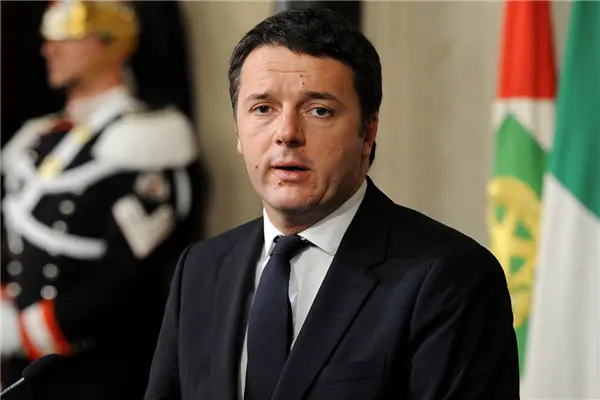Italy's most important political party moved closer to fracturing after former Prime Minister Matteo Renzi stepped down Sunday as the Democratic Party's general secretary, setting up a showdown between his allies and the party's old guard.
The polarizing Renzi, who was prime minister for nearly three years ending in December, is looking to once again wear the prime minster's sash. But opposition to him is growing within the party, including key figures such as former Prime Minister Massimo D'Alema and Pier Luigi Bersani, who preceded Renzi as the party's general secretary.
D'Alema, Bersani and other long-time party leaders have threatened to break away and form their own party, something some expert commentators said may be inevitable.
"It's very difficult to imagine a scenario where the Democratic Party remains intact," Sergio Fabbrini, director of the School of Government at Rome's LUISS University, told Xinhua.
Fabbrini said he expected the breakaway party to stay within the current government coalition under Prime Minister Paolo Gentiloni, a Renzi supporter, until the end of the year so that the country's 2018 budget can be finalized.
"Once the budget is finalized in October or November, the new party will withdraw, Gentiloni will have to step down, and then new elections will follow," Fabbrini said.
If Renzi manages to secure the leadership of the Democratic Party as expected -- his resignation from that post on Sunday was a necessary precondition to his candidacy -- D'Alema, Bersani, and their allies would risk being left off the party's parliamentary list if they remained in the party. The general secretary -- Renzi in that scenario -- picks the party's candidates.
But with their own party, those figures would be almost assured to return to parliament. And once they had a few parliamentary seats, they could enter into a coalition with whichever party won, meaning they would be in a position to take control of one or more government ministries and help dictate the government's priorities.
"From the perspective of the Renzi critics, they have more options by creating their own party even if the party ends up winning only 2 or 3 percent of the vote," Arianna Montanari, an expert on the sociology of political phenomena with Rome's Sapienza University, said in an interview.
There is still no consensus on whether the elections will ultimately happen this year or early in 2018, as scheduled. But the real question is who will come out ahead when the vote takes place.
Pollsters report that the beleaguered Democratic Party has slightly more support than the anti-European Union Five-Star Movement, founded by comedian-turned-activist Beppe Grillo. But the Five-Star Movement would be favored if the Democratic Party splinters before the vote takes place.
Regarding what would happen if the Five-Star Movement finished first but fell short of the 40-percent threshold that would give it bonus seats in the new parliament, Fabbrini said that party would get the first shot at forming a coalition. But Montanari said other parties would likely band together to make sure Grillo's allies would not be able to take power.
"There are fears over what a Five-Star Movement government would mean for Italy and for the European Union," she said.
(APD)
 简体中文
简体中文

